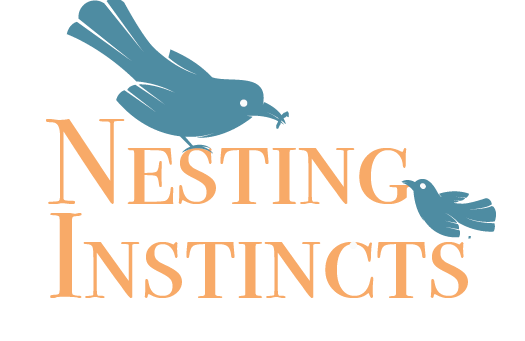Breastfeeding Can Succeed, Even in a Pandemic
Nursing is a greater challenge these days, but there are resources available.
By Cheryl Murfin, published November 2020 in Seattle’s Child Magazine
I can’t think of a time when breastfeeding (and breastfeeding support) might be more important than during a pandemic.
While the jury is still out on whether breast milk offers protection against COVID-19 in particular, researchers are working hard to find out. But no matter the outcome of that work, decades of study already confirm that the antibodies found in breast milk protect babies against myriad other viruses and bacteria. We know, for example, that nursing babies have fewer ear, respiratory, urinary tract and other infections than non-breastfed babies. We know such conditions could, at a minimum, complicate a COVID-19 diagnosis for an infant.
As a longtime doula and lactation educator, I know something else: Breastfeeding success is strongly influenced by the community of support that surrounds a family. Parents need breastfeeding support.
Parents are most likely to breastfeed — and do it long-term — when they have easy access to factual information, connection with other parents committed to exclusive or majority breastfeeding, and hands-on guidance from experts trained to address breastfeeding discomforts or significant problems. They need breastfeeding support.
Unfortunately, the isolation and fear wrought by the pandemic has left many new families without these critical connections.
In fact, less than a handful of my doula clients this year had or will have any physical in-home help from family and friends after birth. Since March, worry about grandparent health or about silent transmission of the virus has led to a flurry of flight cancellations. News of rising COVID-19 cases has made new parents fearful of in-home visits by professional lactation consultants or postpartum doulas, and doubly afraid to take a baby in for a hospital-based consultation. Several of my clients who were determined to nurse exclusively for the first year have expressed a lack of confidence in that goal — even if nursing is going well.
As one client put the experience of many, “We just feel completely alone.”
Where to find breastfeeding support
Before COVID-19 closed a lot of doors, I gave families a list of resources to support nursing, the same resources I used as a new mother two decades ago:
The Program for Early Parent Support, or PEPS, where new parents connect with others whose babies are close in age. It was at a PEPS meeting that another mom suggested I seek help for postpartum depression, which was rarely discussed at the time. I am still grateful.
La Leche League meetings, where nursing parents share information, advice and encouragement. I called a La Leche League leader late at night to talk me off the quitting ledge more than once.
International Board Certified Lactation Consultants (IBCLC), the research-based experts on all things mothers’ milk and breastfed babies. A lactation consultant helped me put an end to recurring bouts of mastitis (breast infection).
Weekly drop-in lactation clinics where questions are answered by a certified consultant, and parents leave with greater confidence and, perhaps more importantly, more socially connections.
Grandparents and family.
Unfortunately, these resources are not what they were less than a year ago. Breastfeeding support groups aren’t meeting physically. Drop-in clinics like the popular group at UW Medical Center — Northwest have disappeared. Grandparents are staying home. I worry about the long-term impact that reduced access to these wrap-around supports could have on our state’s outstanding rates of nursing. I worry mothers and babies — and their breastfeeding success — will fall through the cracks.
Still, we doulas live in hope. If the current pandemic has done anything good, it has made new parents and those that serve them more resourceful. After the initial loss of almost all non-hospital lactation support services at the beginning of Washington’s lockdown, the community of help is resurfacing. It is not the same — a virtual meeting may never convey the same sense of connection and intimacy and trust experienced sitting beside another human being or feeling their healing touch. But until a vaccine is found, and the world comes out of hiding, virtual will have to do.
Like many things amidst the pandemic, my advice for keeping your baby at the breast and your parenting sane is the same as it was before COVID-19, but different:
Embrace the virtual. Sign up for PEPS and try a virtual La Leche League meeting.
Reach out to an IBCLC-certified lactation consultant. But several in the region have resumed home visits using masks and other protections recommended for medical providers. Wear a mask yourself.
Set up a virtual or “telehealth” IBCLC-led lactation consultation with your hospital or with a community- certified consultant. It helps to have a partner with you to move the phone camera into various positions so the consultant can really “see” what’s going on.
Allow select family and friends to help, but lower the risk for everyone. If you can, keep a box of KN95 masks, hand sanitizer or rubbing alcohol, and a box of nitrile gloves outside your door. Masked and gloved friends and family can get a lot done while still keeping six 6 feet away from you and your baby. Wear your mask as well.
If you cannot nurse due to pain, poor latch, or other issues, pump breast milk for your baby until you get the help you need to nurse at the breast. Most insurance covers breast pump purchase or rental. Washington’s WIC program provides pumps for moms working or going to school.
Finally, if you contract COVID-19, nurse your baby. Breast is still best. Just follow the simple guidelines set forth by the U.S. Centers for Disease Control.
Cheryl Murfin is a certified doula, lactation educator and postpartum doula. She’s the owner of Nesting Instincts Perinatal Services in Seattle.


